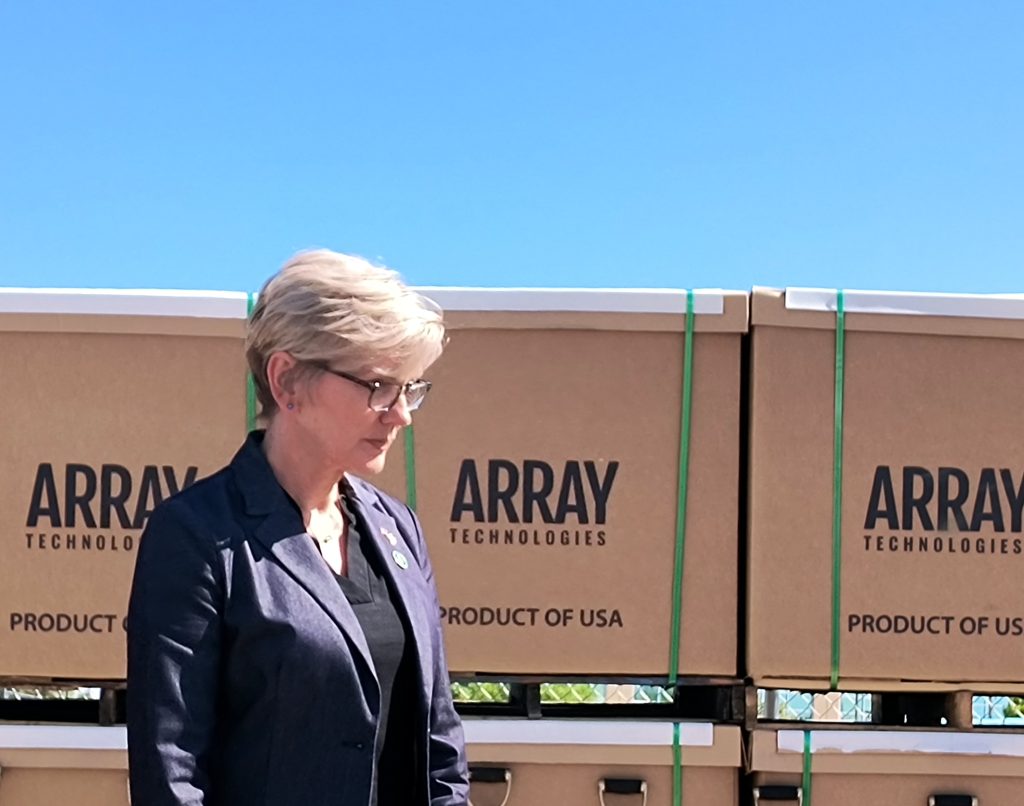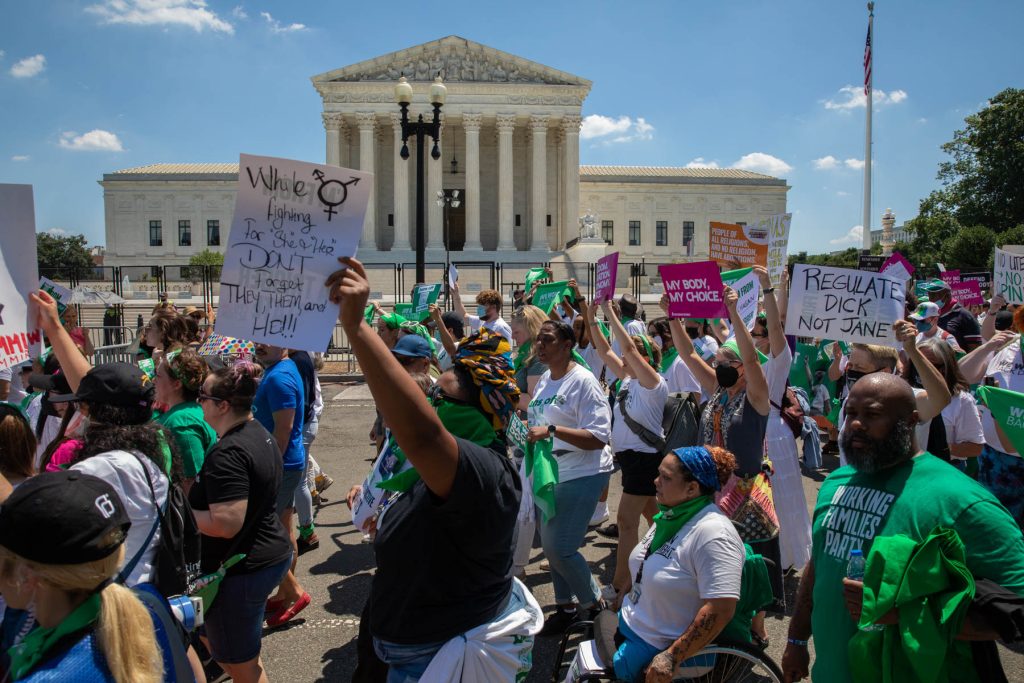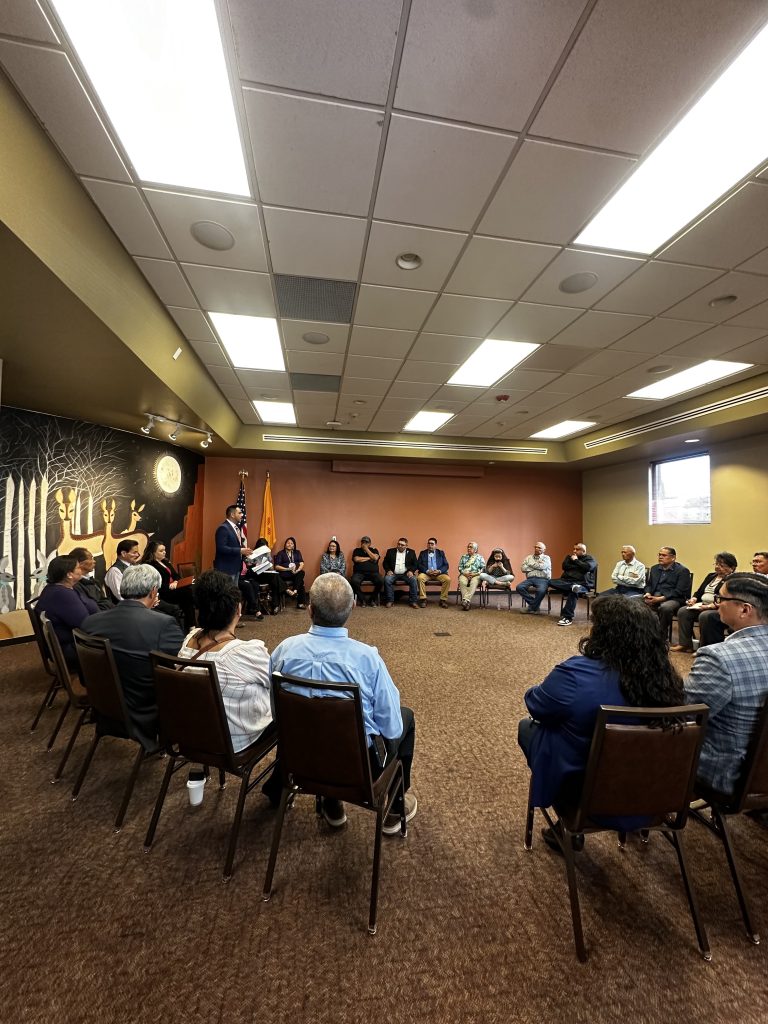A high-profile New Mexico medical cannabis producer still maintains a recent change in the wording of the state’s medical cannabis law means non-residents should be able to become patients.
Brian Egolf, an attorney for medical cannabis producer Ultra Health, sent a six-page letter arguing that point to Medical Cannabis Program director Kenny Vigil on Wednesday.
Egolf is also New Mexico’s Speaker of the House.
In the letter, Egolf outlined five reasons why the state should allow non-residents to become patients in New Mexico’s medical cannabis program, including a straightforward reading of the law, the fact that other state programs include non-residents, that state law prohibits transporting cannabis across state lines and that the Department of Health cannot override state law.
A DOH spokesman said the department received the letter late in the day on Wednesday and was still reviewing it at publication time.
Egolf sent the letter in response to the DOH’s declaration that only New Mexico residents can become medical cannabis patients. DOH said this after Ultra Health’s public announcements that non-New Mexico residents could become medical cannabis patients under a new change to state law.
The change in wording was part of an omnibus bill which made sweeping changes to the state’s medical cannabis law. One specific change, was in the definition of a “qualified patient.” Prior to the change, a “qualified patient” had to be a “resident of New Mexico.” Now, a qualified patient is a “person.”
Ultra Health’s president and CEO Duke Rodriguez previously told NM Political Report that the wording was clear and unambiguous. DOH disagreed with Rodriguez’s reading.
Now Egolf, on behalf of Ultra Health, is asking the state to reverse their decision.
“Our client sincerely hopes that the MCP and NMDOH will reconsider its position on this matter and comply with the plain language of the [Lynn and Erin Compassionate Use] Act,” Egolf wrote.
He also argued against a previous explanation from DOH that the change from “resident of New Mexico” to “person” referenced allowing reciprocity with other medical cannabis states.
“It is important that there are two different definitions for ‘qualified patient’ and ‘reciprocal participant,’” Egolf wrote. “That is, if there are two different terms, they must mean different things.”
State law now allows for medical cannabis patients from other states to use their credentials from those states to purchase medical cannabis in New Mexico. That change requires DOH to come up with a rule change by March 2020.
Egolf said that New Mexico already allows non-residents to receive medical care and fill prescriptions through the mail. That, combined with the law’s stated intention to normalize medical cannabis is enough reason for the state to reverse their previous statement, he said. Egolf also cited fishing and hunting licenses as well as access to oil and gas extraction as benefits non-residents get in New Mexico.
In a previous statement to NM Political Report, DOH argued that Rodriguez’s reading of the law would imply that the state approved of patients crossing state lines with cannabis, which is a federal offense. But, in his letter to the department, Egolf argued that allowing non-residents to obtain a medical cannabis card and purchase cannabis in New Mexico is not the same as encouraging patients to break the law.
“It is the nonresident who takes the risk of entering New Mexico to consume medical cannabis,” Egolf wrote. “Certainly, DOH can use its resources to educate nonresidents about those potential risks and to advise nonresidents to think carefully about the choice.”
He added that the law now allows for “consumption areas” which would provide a place for both residents and non-residents to use medical cannabis. But it’s unclear when designated areas to use medical cannabis in New Mexico might become official, as the law requires DOH to promulgate rules for consumption areas, and did not provide a deadline.
Lastly, Egolf’s letter points to two court cases, both of which Egolf represented the plaintiffs, as examples of when a judge ruled that the department should serve a ministerial duty.
One case involved a medical professional who argued the state cannot require additional information beyond a medical provider’s recommendation for a potential patient. In the second case, Ultra Health argued DOH overstepped its authority by trying to limit the number of dispensaries a single medical cannabis producer can open.
In his letter, Egolf reasoned that since the judges in both cases ruled against DOH, it would likely happen again if the residency issue is challenged in court.
Egolf also wrote that Ultra Health would prefer to not take this issue to court.
“Our client wishes to resolve this matter amicably and expeditiously,” Egolf wrote. “Our client does not wish to seek the assistance of the Courts to resolve a matter that it believes is simple and straightforward.”
[scribd id=413924743 key=key-ZXBFaVj6VBqQq94zXPX6 mode=scroll]





















